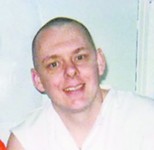Kenneth Foster's Execution Still Looms
Court of Criminal Appeals denies appeal of death row inmate Kenneth Foster, clearing one last legal hurdle before his scheduled execution
By Jordan Smith, Fri., Aug. 17, 2007

The Court of Criminal Appeals denied the appeal of death row inmate Kenneth Foster on Aug. 8, clearing one last legal hurdle before his scheduled execution at the end of the month. Unless the U.S. Supreme Court or, more likely, the Board of Pardons and Paroles (and then Gov. Rick Perry) steps in, Foster will be executed Aug. 30 -- not for killing anyone but for failing to anticipate that someone would be killed. Foster was convicted and sentenced to die for the 1996 San Antonio murder of Michael LaHood Jr. The man directly responsible for LaHood's death, triggerman Maurecio Brown, was convicted of the crime and executed in 2006. Foster, then 19, was about 90 feet away from Brown and LaHood at the time of the murder, sitting behind the wheel of the car that Brown was riding in -- and that was enough for prosecutors to seek Foster's execution under the state's law of parties, which posits that Foster "should have anticipated" that Brown would commit a murder.
As illogical as that sounds, the state ran with it and stands by the decision to do so -- prosecutors noted that Foster, Brown, and two other young men, Julius Steen and Dwayne Dillard, had committed two random robberies while riding around in Foster's car that night (stealing from strangers but physically harming no one). Bexar Co. prosecutors argued at trial that the earlier robberies suggested the men did intend to harm LaHood even though there was no evidence to suggest such a "conspiracy." And it is worth noting that prosecutors did not seek death for either Steen or Dillard, even though the state's theory of the crime under the law of parties should have made them eligible for death. (For more on Foster's case and the law of parties, see "Wrong Place, Wrong Time," Feb. 11, 2005.)
Foster's fate is now in the hands of the Board of Pardons and Paroles, which will review the file and determine whether Foster should be spared and his sentence commuted to life in prison. But ultimately, the buck stops with Perry, who has the power to affirm or deny board recommendations. While Foster's supporters are cautiously optimistic at Foster's chances for a commutation, Perry's record here isn't exactly anything to celebrate: The last time the board voted to commute a sentence, in 2004 on a 6-1 vote in favor of sparing Kelsey Patterson, a diagnosed paranoid schizophrenic, Perry ignored the recommendation, sending Patterson to the gurney and to his death.
Got something to say on the subject? Send a letter to the editor.










